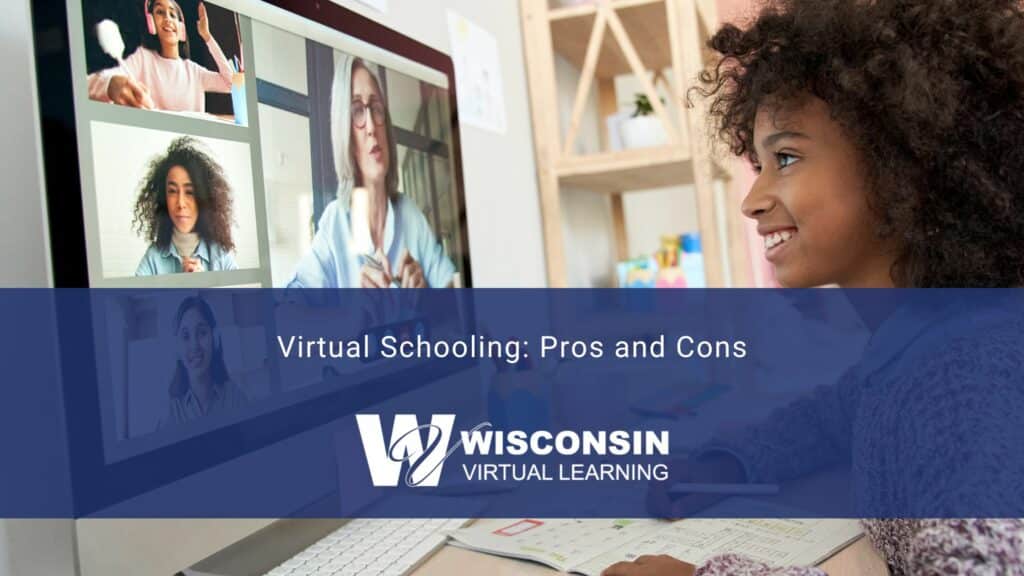Virtual schooling, once considered a niche option, has become a mainstream alternative to traditional brick-and-mortar education. Now, more children than ever attend virtual schools and thrive in ways they may not have experienced in conventional education settings. With the advent of technology, it’s now possible for students to access quality education from the comfort of their homes. For parents who are considering a switch to virtual schooling, it’s essential to weigh the pros and cons in order to make an informed decision that best suits their child’s needs.
What Are the Pros of Virtual Learning?
1. Flexibility
One of the most significant advantages of virtual schooling is flexibility. Students can create personalized schedules that work around their individual needs. This flexibility can be a game-changer for students with other commitments like extracurricular activities, part-time jobs, or medical conditions requiring frequent appointments. It also allows students to learn at their own pace in a setting that is optimal for their individual needs.
2. Individualized Learning
Virtual schools often offer more individualized learning opportunities. Students can receive one-on-one attention from teachers or access resources tailored to their learning style. This can be especially beneficial for students who struggle with certain subjects or face additional challenges in others.
3. Safety and Comfort
In today’s world, safety is a top concern. Virtual schooling provides a safe learning environment, free from the physical risks that can sometimes be associated with traditional schools. Additionally, students can learn in a comfortable and familiar space, reducing anxiety and stress.
4. Access to a Variety of Courses
Virtual schools often offer a wide range of courses, including those that may not be available in traditional schools. Often, schools can be limited in what they teach based on the knowledge and expertise of their staff. Virtual instructors or courses allow students to be connected with courses that allow them to explore their interests and passions in greater depth, fostering a love for learning.
What Are the Cons of Virtual Schooling?
1. Lack of Social Interaction
While virtual schooling may offer fewer daily in-person face-to-face interactions with peers, this presents an opportunity for parents to take a proactive role in finding social opportunities outside of school. There are opportunities to collaborate in virtual groups
On the other hand, negative interactions like bullying in traditional schools can be a major concern. Virtual schooling allows parents to create a safe and positive social environment for their children, fostering healthy friendships and social growth.
2. Tech Issues and Distractions
Technology can be a double-edged sword. While it enables virtual schooling, it can also lead to technical issues and distractions. Students might face challenges with internet connectivity or become easily distracted by non-educational content online. However, these challenges also provide a learning opportunity for students to develop problem-solving skills, focus, and resilience. By addressing tech issues together, parents and students can strengthen their tech-savvy abilities and learn to navigate the digital world effectively. This is a great skill to have for future work opportunities as well following graduation.
3. Parental Involvement
Virtual schooling almost always requires a higher level of parental involvement than traditional schooling. Parents may need to take on the role of learning coaches, providing guidance and support. While this can be a drawback for busy parents, even this can be reframed as a chance for parents to engage in their child’s education actively. Rather than a burden, it becomes an opportunity for parents to partner with their child’s learning journey. By offering guidance, support, and sharing in the learning experience, parents can strengthen their bond with their children and actively contribute to their academic success.
4. Self-Discipline
Virtual schooling demands a level of self-discipline and time management that not all students possess. Some students may need the daily structure of a traditional school to stay on track. Not all students have self-discipline and time management skills, but they can be learned and developed. Virtual schooling provides an ideal environment for students to acquire these essential life skills. With the proper support and guidance, students can gradually build self-discipline, helping them excel not only in their education but also in their future endeavors.
Is Virtual Schooling Right for Your Family?
Virtual schooling does come with its own set of challenges, but it’s important to view these challenges as opportunities for growth and positive change. By focusing on these opportunities, parents can make informed decisions that best suit their child’s unique needs and aspirations.
If you think virtual schooling might be a good fit for your child, contact Wisconsin Virtual Learning for more information.

